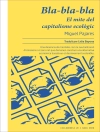Managing the challenges of governance is more than merely managing people and resources; it is about managing the values that intersecting cultures attach to people and resources. The Ethics of Public Administration: The Challenges of Global Governance provides an exploratory introduction to the history and trends of major ethical cultures around the globe. Featuring chapters that explore national and ideological forms of ethics–including those of India, Russia, and Africa as well as Marxism, Leninism, Daoism, Buddhism, Confucianism, Judaism, Christianity, and Islam– The Ethics of Public Administration is an indispensable guide for all those working in international affairs and government.
Table of Content
Acknowledgments
PART I
Introduction
1 Public Administration Ethics through Time and Place
2 The Five E’s of Orthodox Public Administration
PART II
Ethical Traditions for Public Administration
3 Ethical Traditions of India
4 Ethical Traditions of Daoism
5 Ethics in the Buddhist Traditions
6 Traditions of Confucian Ethics
7 Ethics in the Judaic Tradition
8 Ethics in the Constitutionalist and Republican Traditions
9 Ethics in the Christian Tradition
10 Ethics in the Traditions of Islam
11 Ethics in the Traditions of Africa
12 Ethics in the Liberal Tradition
13 Marxist-Leninist Ethical Traditions
14 Ethics in the Russian Tradition
PART III
Conclusion
15 Revisiting the ‘Global’ in the Challenges of Global Governance
Appendix
Notes
Bibliography
Index
About the author
Sara R. Jordan is Assistant Professor in the Department of Politics and Public Administration and The Graduate School at the University of Hong Kong, where her research interests include civil service and research ethics.
Phillip W. Gray is Lecturer, Humanities Department, United States Coast Guard Academy. He has taught at various universities in Hong Kong, and his research focuses on international political theory, morality in warfare, and totalitarian politics.












